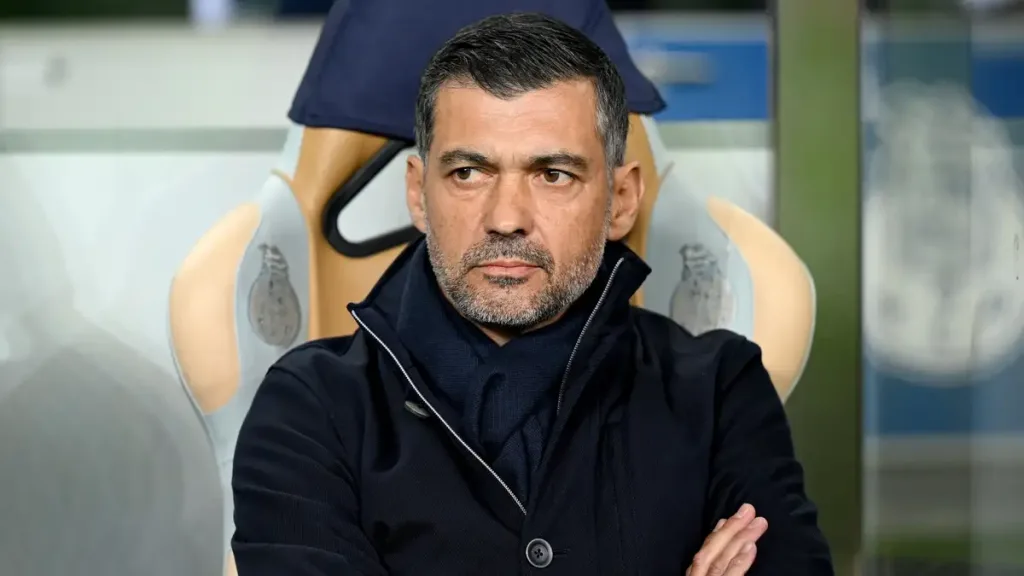AC Milan has officially parted ways with head coach Sergio Conceicao, ending his brief tenure after just five months, the club announced on Thursday, May 29, 2025. The decision follows a lackluster 2024-25 season that saw the Rossoneri finish ninth in Serie A, missing out on European competition for the first time since 2019. The Portuguese manager, appointed on December 30, 2024, to replace Paulo Fonseca, failed to steer the club out of its mid-table position, prompting the Italian giants to seek a new direction.
Conceicao arrived at Milan with a strong reputation, having won 11 major trophies during a successful six-year spell at FC Porto. His tenure began promisingly, with a thrilling 3-2 comeback victory over rivals Inter Milan in the Italian Super Cup in January, marking the club’s 50th trophy. However, the early success quickly faded as Milan struggled to find consistency in the league. A 2-1 defeat to AS Roma last weekend, in which Conceicao was sent off and subsequently banned for the season’s final match, extinguished the club’s hopes of securing a European spot. Additionally, a 1-0 loss to Bologna in the Coppa Italia final earlier in May further underscored the season’s disappointments.
Despite an initial uptick in results, Conceicao’s record of 16 wins, five draws, and 10 defeats in 31 matches failed to meet the expectations of a club with Milan’s storied history. The team’s elimination by Feyenoord in the UEFA Champions League playoffs and a series of inconsistent performances in Serie A fueled speculation about his departure for months. Reports indicate that Conceicao himself considered walking away, with tensions reportedly strained between him and the club’s management. His assistant, Joao Costa, hinted at underlying issues, stating after the Roma loss that discussions about the team’s poor position would begin soon.
Milan’s statement was brief but appreciative: “AC Milan and Sérgio Conceição will not continue their journey together next season. The club would like to thank Sérgio and his staff for their commitment, professionalism, and dedication shown during their time leading the First Team over the past few months.” The announcement was accompanied by a 25-second video highlighting Conceicao’s moments on the touchline and his Super Cup triumph, a gesture that contrasted with the abrupt nature of his exit.
The sacking marks Milan’s third managerial change in 12 months, following the dismissals of Stefano Pioli and Paulo Fonseca in 2024. The club’s American owners, RedBird, led by Gerry Cardinale, have faced criticism for their managerial decisions, with the appointment of Fonseca over high-profile candidates like Antonio Conte proving particularly contentious. Conte, now on the verge of leading Napoli to the Serie A title, was a missed opportunity that has haunted Milan’s campaign.
Speculation is rife about Conceicao’s replacement, with reports suggesting that Massimiliano Allegri, who managed Milan to the Serie A title in 2010-11, is set to return to the San Siro. Italian media outlets, including MilanNews.it, indicate that Allegri has already agreed to a contract, though the club delayed the announcement until Conceicao was formally notified of his dismissal. Allegri’s pragmatic approach, honed during his successful stint at Juventus, could provide the stability Milan craves, though some fans have expressed reservations about his conservative style of play.
The managerial upheaval has also cast uncertainty over the futures of several players, including England stars Fikayo Tomori, Ruben Loftus-Cheek, and others linked with moves away from the club. Tomori, in particular, has attracted interest from Tottenham Hotspur, while Manchester City are reportedly pursuing midfielder Tijjani Reijnders for a fee exceeding £55 million. The potential departure of key players, combined with the absence of European football, presents a significant challenge for Milan’s next manager.
Conceicao’s final days at Milan were marked by controversy, including complaints about VAR decisions following the Roma defeat. “The positive episodes always go to others,” he remarked, pointing to perceived inconsistencies that he believed hindered his team. Despite these frustrations, he acknowledged some positives, such as the Super Cup win and reaching the Coppa Italia final, but admitted the season fell short of Milan’s standards.


